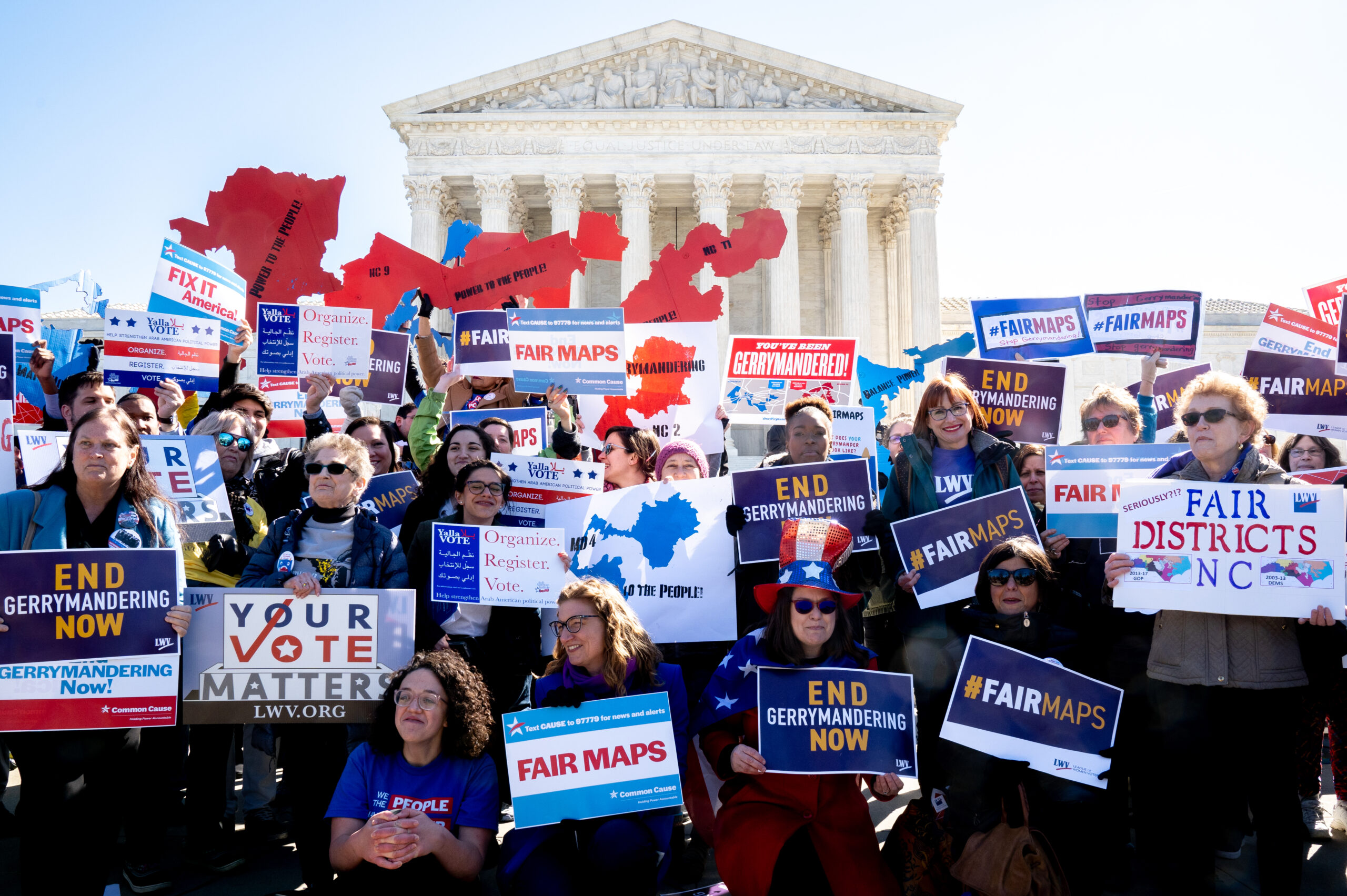In one of the most pleasantly shocking decisions of the Roberts/Alito era, the United States Supreme Court today ruled that Alabama’s current congressional map likely violates the United States Voting Rights Act by diluting the votes of the state’s Black residents through gerrymandering. Only last year, the Court had given Alabama the okay to use the map after a lower court found it in violation of the VRA. Today, the Court somewhat reversed itself, with right wing Justices John Roberts and Brett Kavanaugh joining its three liberals to find for the plaintiffs.
The decision, a big blow to the right wing, means that Alabama Republicans’ gamble that the Court would accept its invitation to further weaken the Voting Rights Act has failed. While Justices Alito, Thomas, Gorsuch, and Coney Barrett wanted to go along with Alabama, Roberts and Kavanaugh were not interested.
As a consequence, it looks like Alabama, one of the most Republican-dominated states in the country, might soon be forced to redraw its congressional map.
“The decision came as somewhat of a surprise after the oral argument in October, at which the court’s conservative justices seemed likely to set aside the lower court’s ruling,” noted Amy Howe, a respected Supreme Court observer. “But it was a welcome surprise for the challengers and their supporters.”
“This decision is a crucial win against the continued onslaught of attacks on voting rights,” said a victorious Deuel Ross of the Legal Defense Fund.
Ross is counsel for the plaintiffs and argued the case before the Court.
“Alabama attempted to rewrite federal law by saying race could not be considered in the redistricting process even when necessary to remedy racial discrimination.”
“But because of the state’s sordid and well-documented pattern of persisting racial discrimination, race must be considered to ensure communities of color are not boxed out of the electoral process. While the Voting Rights Act and other key protections against discriminatory voting laws have been weakened in recent years and states continue to pass provisions to disenfranchise Black voters, today’s decision is a recognition of Section 2′s purpose to prevent voting discrimination and the very basic right to a fair shot,” Ross explained.
“The heart of these cases is not about the law as it exists. It is about Alabama’s attempt to remake our [Voting Rights Act Section] §2 jurisprudence anew,” wrote right wing Chief Justice Roberts in the majority opinion, also signed by Justices Elena Kagan, Sonia Sotomayor, and Ketanji Brown Jackson.
“The centerpiece of the State’s effort is what it calls the ‘race-neutral benchmark,’ ” Roberts elaborated. “The theory behind it is this: Using modern computer technology, mapmakers can now generate millions of possible districting maps for a given State. The maps can be designed to comply with traditional districting criteria but to not consider race. The mapmaker can determine how many majority-minority districts exist in each map, and can then calculate the median or average number of majority-minority districts in the entire multimillion-map set.”
“That number is called the race-neutral benchmark.”
“Although we are content to reject Alabama’s invitation to change existing law on the ground that the State misunderstands §2 and our decisions implementing it, we also address how the race-neutral benchmark would operate in practice. Alabama’s approach fares poorly on that score, which further counsels against our adopting it,” Roberts added after offering a lengthy repudiation of its arguments.
One of the more interesting passages in Roberts’ opinion recounts the history of City of Mobile v. Bolden, a major VRA-related case from the 1970s.
That was a case in which the Court held “that disproportionate effects alone, absent purposeful discrimination, are insufficient to establish a claim of racial discrimination affecting voting,” as summarized by Wikipedia.
Noted Roberts:
Almost immediately after it was decided, Mobile “produced an avalanche of criticism, both in the media and within the civil rights community.” T. Boyd & S. Markman, The 1982 Amendments to the Voting Rights Act: A Legislative History, 40 Wash. & Lee L. Rev. 1347, 1355 (1983) (Boyd & Markman). The New York Times wrote that the decision represented “the biggest step backwards in civil rights to come from the Nixon Court.” N. Y. Times, Apr. 23, 1980, p. A22.
And the Washington Post described Mobile as a “major defeat for blacks and other minorities fighting electoral schemes that exclude them from office.” Washington Post, Apr. 23, 1980, p. A5.
By focusing on discriminatory intent and ignoring disparate effect, critics argued, the Court had abrogated “the standard used by the courts to determine whether [racial] discrimination existed … : Whether such discrimination existed.” It’s Results That Count, Philadelphia Inquirer, Mar. 3, 1982, p. 8–A.
A similar “avalanche of criticism” followed the Roberts Court’s decision in Shelby County, although Roberts conveniently neglected to mention that in his opinion. Still, as the old saying goes, even a broken clock can be right twice a day. It was going to take the defections of two right wing justices for the state to lose this case. Somehow, that happened, which is a really good thing for Alabama, the Voting Rights Act, and the country. Kudos to the plaintiffs for their persistence and thoughtful legal representation. They’ve won an important victory here.

